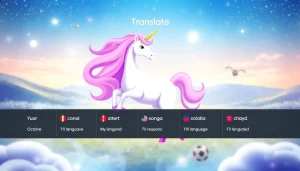Healing After a Relationship Breakup: Insights and Strategies for Moving Forward
Understanding the Emotional Impact of a Relationship Breakup
Experiencing a relationship breakup can create an emotional whirlwind that many find hard to navigate. The ending of a romantic relationship signifies more than just the dissolution of a partnership; it often involves the loss of dreams, future plans, and an established emotional bond. Whether the breakup is mutual or one-sided, the psychological repercussions can be profound and lasting.
The Stages of Grief After a Relationship Breakup
After a breakup, it’s typical to go through various stages of grief. Understanding these phases can help individuals cope effectively. The stages, as outlined by psychologist Elisabeth Kübler-Ross, include:
- Denial: Initial shock and disbelief that the relationship has ended, often leading individuals to minimize their loss.
- Anger: Frustration and resentment may surface, often directed at the ex-partner or oneself.
- Bargaining: A period of negotiation—often with oneself—where individuals might question if things could have been different.
- Depression: Deep sadness and emotional pain may set in, requiring reflection and acknowledgment of feelings.
- Acceptance: Ultimately, individuals come to terms with the breakup and begin to find a new normal.
The duration and intensity of each stage can vary significantly among individuals, and it’s essential to allow oneself to fully experience these emotions.
Common Emotions Experienced During a Relationship Breakup
Alongside the stages of grief, various emotions may surface during a breakup. Some of these feelings can include:
- Sadness: A profound sense of loss can lead to sorrow as individuals mourn the end of the relationship.
- Fear: Concerns about the future and navigating life alone can provoke anxiety.
- Guilt: Individuals may question if they could have done something differently, leading to regrets about their actions.
- Relief: If the relationship was fraught with conflict, some may experience relief, recognizing that the decision was ultimately for the best.
Understanding these emotions helps in normalizing feelings and coping more effectively.
Recognizing When Professional Help is Needed Post-Breakup
While many individuals can navigate their emotions following a breakup, some might find it challenging to cope. Signs that professional help may be necessary include:
- Persistent feelings of sadness or hopelessness that last more than a few weeks.
- Difficulty adjusting to daily life or fulfilling responsibilities.
- Increased substance use as a coping mechanism.
- Thoughts of self-harm or suicide.
Seeking therapy can provide an essential support system and tools for processing emotions and beginning the healing journey.
Effective Strategies to Cope with a Relationship Breakup
Coping with the aftermath of a relationship breakup requires time, self-compassion, and actively engaging in strategies that promote healing.
Practical Steps for Self-Care During a Relationship Breakup
Self-care is paramount during the recovery phase. Affirming your well-being reiterates your value beyond the relationship. Consider the following:
- Establish a Routine: Routines promote stability. Scheduling activities can ensure that you remain engaged and productive while promoting emotional stability.
- Prioritize Physical Health: Engage in physical activities such as walking, yoga, or any form of exercise you enjoy. Don’t underestimate the connection between physical health and emotional well-being.
- Pursue Hobbies: Reconnect with interests and passions that seek your attention. Hobbies can serve as a therapeutic outlet, offering a distraction and creative expression.
- Practice Mindfulness: Meditation, deep breathing exercises, or even simple practices of gratitude can help center your thoughts and reduce anxiety.
Building a Support Network After a Relationship Breakup
During tough times, surrounding yourself with supportive individuals can foster healing. Identify friends, family members, or peers who offer a listening ear and validation. It’s valuable to engage with:
- Friends: Spend quality time with people who lift you up and understand your emotional state.
- Family: Lean on family members who can provide guidance and love during your recovery.
- Support Groups: Finding community with others experiencing breakups can foster a sense of understanding and shared experiences.
Don’t hesitate to ask for help. Vulnerability can lead to deeper connections and greater support.
Using Journaling and Reflection as Tools Post-Breakup
Writing can be an effective method of processing emotions. By keeping a journal, individuals can:
- Express Feelings: Documenting emotions serves as a release, providing clarity over time.
- Track Progress: Reflecting on past entries can highlight personal growth and recognize how feelings evolve.
- Work Through Thoughts: Organized thoughts can clarify complex feelings and aid in decision-making.
Considering prompts such as “What did I learn from this relationship?” or “How can I grow from this experience?” can help generate insightful reflections.
How to Move On from a Relationship Breakup
Moving on after a relationship breakup is a journey that requires patience, resilience, and sometimes a shift in perspective.
Establishing Healthy Boundaries After a Relationship Breakup
Creating boundaries post-breakup is crucial to maintaining emotional stability. Ensure you:
- Limit Contact: Giving yourself space from your ex helps the healing process by reducing encounters that may trigger painful memories.
- Communicate Preferences: If mutual friends remain, communicate with them about your boundaries to avoid shared events that could be uncomfortable.
- Digital Detox: Consider unfollowing or muting your ex on social media to prevent constant reminders of the past.
Boundaries are essential not just for emotional safety but for focusing on rebuilding your life.
Finding Closure and Acceptance in a Relationship Breakup
Finding closure may take time, but it is a vital step in healing. To assist in this process:
- Reflect on What Went Wrong: Honest self-reflection can reveal patterns that might lead to healthier relationships in the future.
- Accept the Situation: Accepting the reality of the breakup rather than dwelling on “what ifs” allows for proactive moving on.
- Forgive Yourself and Your Ex: Holding on to anger or regret impedes emotional freedom. Aim for a forgiving mindset.
Closure may include engaging in potential rituals, such as writing a letter to your ex (never intended to be sent) to articulate unresolved feelings.
Embracing New Opportunities and Relationships Post-Breakup
Once healing begins, expressing openness to new experiences and future relationships can be liberating:
- Explore New Interests: Join clubs, learn new skills, or participate in community events as a way to enrich your social circle.
- Consider Dating Again: Allow yourself the possibility of love beyond your past relationship. Re-entering the dating scene can be both exciting and affirming.
- Build on Personal Growth: Use the insights gained from the previous relationship to better understand what you seek in future partnerships.
Approaching new relationships with a fresh perspective fosters growth and healthy dynamics.
Avoiding Common Pitfalls After a Relationship Breakup
In the aftermath of a breakup, many individuals may unconsciously fall into negative patterns that can prolong their pain.
The Dangers of Rebound Relationships After a Relationship Breakup
Jumping into a new relationship shortly after a breakup can hinder emotional recovery. Common pitfalls include:
- Avoiding Feelings: Engaging in a rebound can act as a distraction from pain instead of facilitating healing.
- Unresolved Issues: Without addressing feelings from the previous relationship, new connections may be built on shaky foundations.
- Potential for Emotional Harm: New partners might bear the consequences of unresolved emotions, which can lead to repetitive patterns of dysfunction.
Taking time to heal thoroughly before pursuing new relationships safeguards emotional health.
Recognizing and Overcoming Breakup Regret
Regrets following a breakup are common, but they can create emotional turbulence. To manage and overcome regrets:
- Reflect on the Reasons for the Breakup: Reassess the factors that led to the relationship’s end to mitigate impulsive emotions.
- Shift Focus to the Present: Practicing mindfulness can assist in focusing on the present moment rather than dwelling on past decisions.
- Value the Lessons: Each relationship teaches valuable lessons. Reflecting on these insights contributes to personal growth.
Addressing regret involves recognizing its existence, understanding its origins, and choosing to focus on personal development.
What Not to Do Following a Relationship Breakup
Understanding detrimental behaviors can help steer individuals away from self-sabotage:
- Do Not Chase Your Ex: Constantly contacting an ex can hinder healing and display a lack of boundaries.
- Avoid Social Media Comparisons: Refrain from comparing your journey with that of couples online; each experience is unique and individual.
- Don’t Isolate Yourself: Withdrawal from friends and family can worsen loneliness and emotional pain.
While recovery can be a lonely road, engaging consistently with a support network fosters resilience and emotional growth.
Resources for Navigating a Relationship Breakup
Several resources exist to aid individuals navigating a breakup, offering guidance and support:
Books and Online Resources for Coping with a Relationship Breakup
Literature provides insight and comfort during difficult times. Consider exploring:
- “The Breakup Bible” by Rachel Sussman: A comprehensive guide providing practical strategies for managing post-breakup emotions.
- “Getting Past Your Breakup” by Susan J. Elliott: This book outlines a step-by-step process for emotional recovery and growth.
- Online Articles and Blogs: Many reputable sources offer articles that target specific breakup-related challenges, including emotional healing tips.
Support Groups and Therapists Specializing in Breakup Recovery
When seeking therapy or group support, consider:
- Professional Therapy: Engaging with a counselor or therapist specializing in relationship dynamics can provide tailored support.
- Group Therapy or Workshops: Participating in group sessions allows shared experiences to foster understanding and support.
Online Forums and Communities Providing Support for Relationship Breakup
Online platforms can offer community and advice during times of distress:
- Reddit Relationship Advice: An interactive forum where individuals share experiences, insights, and advice.
- Facebook Support Groups: Various groups cater to individuals recovering from relationship breakups, providing peer support and empathy.
Connecting with others who understand similar situations can profoundly affirm one’s emotions and promote healing.














Post Comment